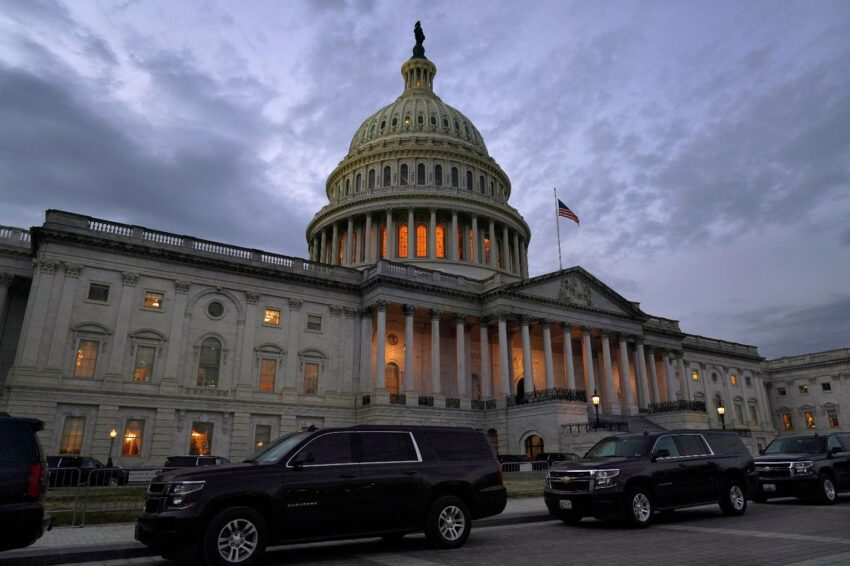The USA – Polarizing the Entire World: A Call for Domestic Focus and Global Collaboration

The Impact of USA’s Global Influence: A Call for Change
The United States of America, often acting as the world’s “police,” significantly influences international politics. This influence, born from economic power and military strength, guides global alliances and rivalries. However, this role also splits the world into two primary factions – those aligning with the USA and its allies, and those siding with its adversaries. We must explore this pattern and advocate for a more balanced global approach and a renewed focus on domestic issues.
The Binary Division of the World: A Result of USA’s Global Influence
The USA’s influence has historically shaped the world, creating a dichotomy that compels nations to either align with the USA and its allies or side with its adversaries. This division traces back to the Cold War era, a prime example of how the USA’s influence polarized the world into two distinct blocs – the Western Bloc led by the USA and the Eastern Bloc led by the Soviet Union.
This polarization extends to various international issues. For instance, the Kyoto Protocol on climate change saw nations divided, largely along lines drawn by their alliance or opposition to the USA. Similarly, the Iran Nuclear Deal highlighted the global split, with countries either supporting or opposing the USA’s stance.
While the USA’s influence has undoubtedly driven significant global advancements, such as the establishment of the United Nations, this binary division has also fostered conflict and power struggles. The Cuban Missile Crisis serves as a stark reminder of how such polarization can escalate to the brink of global catastrophe. These historical instances underscore the need for a less polarized world and a more balanced approach to global issues.
The USA: A Significant Global Player, Not the Sole Leader
It is crucial to remember that the USA is not the world’s sole leader. The United Nations, European Union, and other international bodies play significant roles in maintaining global peace and harmony. The idea that one nation should lead is not only unrealistic but also detrimental to the global community’s diversity and resilience.
The Financial Implications of USA’s Global Leadership
Maintaining a worldwide alliance where the USA is the perceived leader is immensely costly. This expenditure often comes at the expense of domestic needs. The USA’s national debt has skyrocketed over the years, partly due to its extensive military involvement overseas. This financial strain has implications for the country’s social welfare, infrastructure, education, and healthcare sectors, which are vital for the wellbeing of its citizens.
Refocusing on the Homeland: The Need for Domestic Attention in the USA
It is high time for the USA to shift its focus back to its homeland. The country faces pressing issues such as income inequality, racial tensions, crumbling infrastructure, and an ongoing healthcare crisis. Addressing these problems requires substantial investments in social programs, education, infrastructure, and healthcare systems. By focusing on these domestic issues, the USA can ensure a better quality of life for its citizens and create a more resilient nation.
Emergence of New Alliances: Russia, China, and North Korea Responding to USA’s Global Influence
One alarming consequence of the global polarization driven by the USA’s influence is the emergence of new alliances among nations adversarial to the USA. Notably, Russia and China, traditionally considered adversaries of the USA, are now collaborating more closely.
Adding another layer to this complex geopolitical landscape is the resurgence of the so-called “axis of evil,” with North Korea also strengthening its ties with these nations. North Korea’s nuclear ambitions and its recent missile tests have further strained its relationship with the USA, pushing it closer to Russia and China.
These new alliances present a significant challenge to the USA, underscoring the need for a less polarized and more collaborative global environment.
Promoting a Collaborative International Environment: A Shift in USA’s Global Approach
The USA should strive to foster a more collaborative international environment rather than a polarized one. This approach does not mean the USA should withdraw from global affairs. Instead, it should promote a more balanced, multilateral approach to global issues, emphasizing dialogue, cooperation, and mutual respect. This strategy can lead to more sustainable solutions, reduce international tensions, and allow the USA to share the responsibility of global leadership with other nations.
Conclusion: Balancing USA’s Global Influence with Domestic Focus
While the USA’s influence on the world stage is significant, it is not the world’s sole leader. The current pattern of polarization is not sustainable, both financially and politically. It is time for the USA to shift its focus back to its homeland, addressing domestic issues that directly impact its citizens. Simultaneously, the USA should promote a more collaborative, less polarized global environment. By doing so, the USA can ensure a better future for its citizens and contribute positively to the global community.
#GlobalPolarization #USInfluence #DomesticFocus #GlobalCollaboration #WorldBinaryDivision #USALeadership #FinancialBurden #HomelandFocus #RussiaChinaAlliance #InternationalCollaboration #USAPolicyChange #HistoricalEvidence #GlobalDichotomy #SustainableSolutions
See Also our article on the Two Party System

